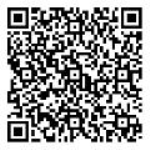期刊目錄列表 - 55卷(2010) - 【教育科學研究期刊】55(3)九月刊
 Directory
Directory
科學自我概念之大魚小池效應探究:資優生教育安置方式的思考
作者:侯雅齡(國立屏東教育大學特殊教育系副教授)
卷期:55卷第3期
日期:2010年9月
頁碼:61-87
DOI:10.3966/2073753X2010095503003
摘要:
本研究目的在瞭解參與集中式資優班的國中資優生,其科學自我概念是否存在負向「大魚小池效應」(big fish little pond effect),抑或資優班的標籤反而帶給個人正向的榮耀感效應(reflected glory effects)?研究樣本包含367位資優生及1,364位一般生,以科學自我概念量表、自然科學業成就測驗與班級榮耀感量表為工具,使用HLM 軟體進行學生及班級二階層模式(multilevel modeling)的統計分析。研究結論為:一、我國資優班學生的科學自我概念存在明顯的負向「大魚小池效應」,雖然「榮耀感效應」也存在但影響力不大;二、個人的科學成就及班級榮耀感對科學自我概念皆有正向影響;三、資優班學生之班級榮耀感、個人科學成就對科學自我概念的影響都比普通班學生大。最後亦分別對未來資優學生安置與研究提出建議。
關鍵詞:大魚小池效應、科學自我概念、教育安置、階層線性模式、資優生
 《詳全文》
《詳全文》

Journal directory listing - Volume 55 (2010) - Journal of Research in Education Sciences【55(3)】September
 Directory
Directory
The Big-Fish-Little-Pond Effect on Science Self-Concept: Some Implications in Educational Placement for Gifted Students
Author: Ya-Ling Hou(Department of Special Education, National Pingtung University of Education)
Vol.&No.:Vol. 55, No. 3
Date:September 2010
Pages:61-87
DOI:10.3966/2073753X2010095503003
Abstract:
The big-fish-little-pond effect (BFLPE) theoretical model posits that students who are educated in academically selective schools and classes will have lower academic self-concepts, than equally able students in non-selective environments. In the present research, 367 gifted students in special homogeneous classes and 1,364 regular classes’students have been investigated for assessing whether the BFLPE is evident in Taiwan. Because the BFLPE is inherently a multilevel phenomenon that incorporates both the individual level and group level, researcher used a two-level multilevel modeling statistical analyses to analyze data. The results provided evidence that BFLPE existed in 9-Grade gifted student in Taiwan, the classes-average ability had a stronger negative effect and a weaker positive effect on science self-concept. Science self-concept was significantly positively predicted by individual science achievement (both linear and quadratic) and class glory status. At the class level, the consistency between the science self-concept and science achievement was stronger for the gifted class than regular class. Finally, the researcher provided some implications for gifted educational placement.
Keywords:big-fish-little-pond effect, science self-concept, educational placement, hierarchical linear models, gifted students